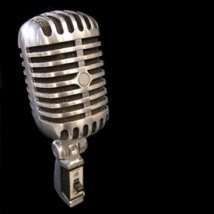 As a nation, we Irish seem to be wedded to our cars.
As a nation, we Irish seem to be wedded to our cars.No, this golfer isn't lost in the rough -- just commuting naturally between his home in Salthill and the local golf course. A lovely image by Galway-based photographer John Smyth that kind of says it all really.
Yes, we are a very driven nation. That's despite the fact that, for journeys of about 5 miles (and over 50% of car journeys are less than that), a bicycle is cheaper, quicker and more efficient, plus you get fresh air and exercise.
(And no, it doesn't rain that often, even in Galway.)
So, how to persuade people to get out of the car and occasionally push a bicycle was one of the topics we discussed in Galway at the recent very successful science cafe, co-hosted by the Environmental Change Institute at NUIG, and Galway's One World Centre.
The wide ranging discussion was fascinating, in part because so many of the people there had worked in or were from so many different countries, and could offer insights from other cultures, as far afield as Scandinavia, Canada and Eritrea.
It seemed generally agreed that we weren't just too posh to push, it was more than just snobbery: we were also too lazy and too affluent (at least until recently) to bother getting out of the car.
Coincidentally, earlier that day, some Manchester City multimillionaire footballer hit the news... when he was seen getting on a public transport bus.
One major issue is image. The problem (new to me!) of 'helmet hair', especially for young women, and untrendy, unattractive safety gear. Young people, it seems, don't want to be seen wearing bicycle helmets and ugly high-visibility jackets.
And it's not just young people: a Canadian lawyer explained that the dress code for legal professionals can rule out arriving in bicycle gear.
So here's a suggestion: commission a trendy fashion designer to design attractive safety gear for cyclists.
When we cyclists are knocked down and mugged for our hi-visibility jackets, we'll know we have arrived! And it'll be nice when a multimillionaire can get on the bus, and not make the headlines.
We also discussed recycling, and I was intrigued to hear about some innovative recycling-reuse schemes in Gort (Co Galway), Mayo and Dundalk, that produce raw materials for local industries, about which I plan to learn more.
My thanks to Sarah Knight and Trisha Buddin for organising the event and inviting me down.











